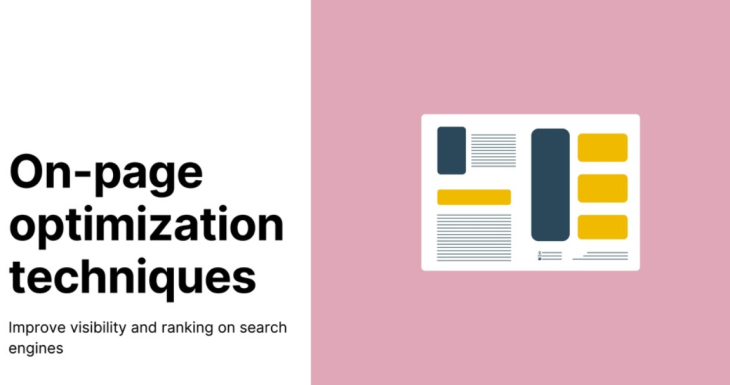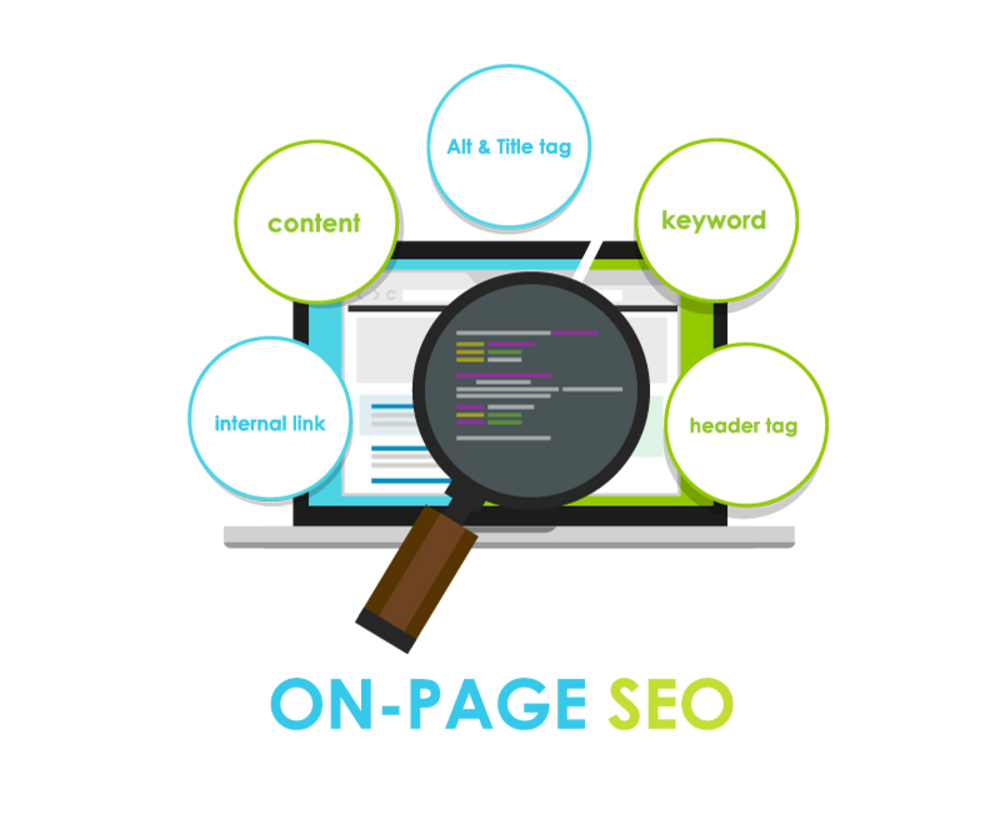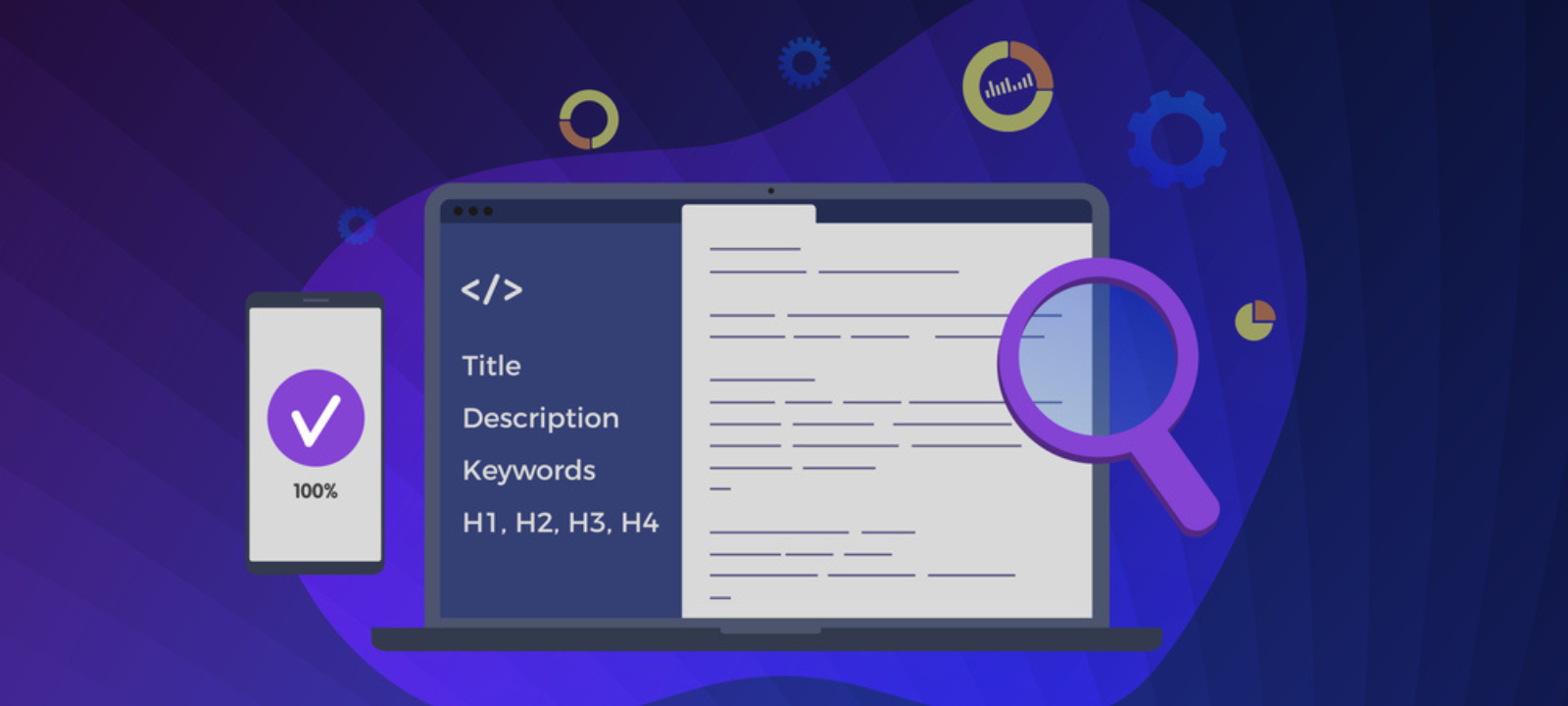
In today’s digital landscape, where countless businesses compete for attention online, having a website is no longer enough. For your website to thrive, it must be visible to your target audience. This is where Search Engine Optimization (SEO) plays a crucial role.
Organic traffic remains the primary driver of website visits. Statista says organic search drives over 53% of website traffic globally. This highlights the significance of optimizing websites for better search rankings and attracting natural traffic. On-page SEO is a critical component of digital marketing, playing a pivotal role in determining a website’s visibility, credibility, and overall success in search engine results.
The importance of On-Page SEO is underscored by several compelling facts and statistics highlighting its impact on online performance.
What is On-Page SEO?

On-site SEO, or on-page SEO, is optimizing individual web pages to improve search engine rankings, attract organic traffic, and enhance user experience. On-Page SEO optimizes website content and structure for search engines, while Off-Page SEO focuses on backlinks.
The main objective of On-Page SEO is to ensure that search engines can quickly grasp the content of a web page and present it to users looking for relevant information. This involves optimizing on-site elements, including meta tags, headers, images, and the overall content structure.
On-Page SEO All Techniques
Content Optimization
Effective On-Page SEO starts with high-quality, relevant content. Ensure your content is well-crafted, educational, and meets the requirements of your intended audience. Incorporate target keywords naturally within the content, headings, and meta tags.
Meta Tags
Make sure to create captivating meta titles and descriptions that precisely reflect the content of every page. Use concise meta tags with relevant keywords for better visibility in search engine results.
URL Structure
Optimize your URL structure to be both user-friendly and search engine-friendly. Use descriptive words that convey the page’s content and structure URLs logically. Avoid using random strings of numbers or symbols.
Header Tags
When creating content, it’s important to structure it hierarchically using header tags such as H1, H2, H3, etc. Organizing your content can make it much easier to read and understand. This is crucial to ensure your audience can easily follow what you are trying to communicate. The H1 tag should encompass the page’s main topic, while subsequent headers break down subtopics. This not only aids in SEO but also enhances the readability of your content.
Image Optimization
Optimize images by using descriptive file names and adding alt text. This not only improves accessibility for users with disabilities but also provides search engines with additional context about the content.
Why is On-Page SEO Important?

In today’s digital landscape, businesses rely on SEO to boost online visibility and attract organic traffic. While off-page SEO focuses on external factors like backlinks and social media engagement, on-page SEO concentrates on optimizing the website itself. Websites with high on-page SEO scores experience a 20% increase in organic traffic. On-page SEO is crucial for businesses for several compelling reasons:
Improved Search Engine Rankings
On-page SEO practices directly influence a website’s rankings. Businesses can increase their website’s search engine ranking by optimizing title tags, meta descriptions, and content relevance for relevant keywords. Higher search engine rankings can improve a website’s visibility and organic traffic.
Enhanced User Experience
Optimized websites provide a positive user experience, essential for both search engines and visitors. On-page SEO techniques like straightforward navigation, concise content, and mobile-friendliness contribute to a seamless user experience, keeping visitors engaged and reducing bounce rates.
Stronger Brand Reputation
A well-optimized website reflects positively on a brand’s reputation. On-page SEO establishes brand credibility by demonstrating attention to detail and providing valuable information.
Cost-Effective Marketing Strategy
On-page SEO offers a long-term, cost-effective marketing strategy compared to paid advertising. Once implemented, on-page SEO optimizations continue to benefit a website for years.
Higher Conversion Rates
An optimized website that aligns with user expectations will more likely convert visitors into customers or leads. On-page SEO can boost conversion rates and achieve business objectives by providing relevant content, clear calls to action, and a user-friendly interface.
Conclusion
On-page SEO is indispensable for any website aspiring to thrive in the competitive online environment. The statistics and facts underscore its importance, emphasizing the direct correlation between effective On-Page SEO practices and a website’s visibility, user experience, and overall success in search engine rankings.